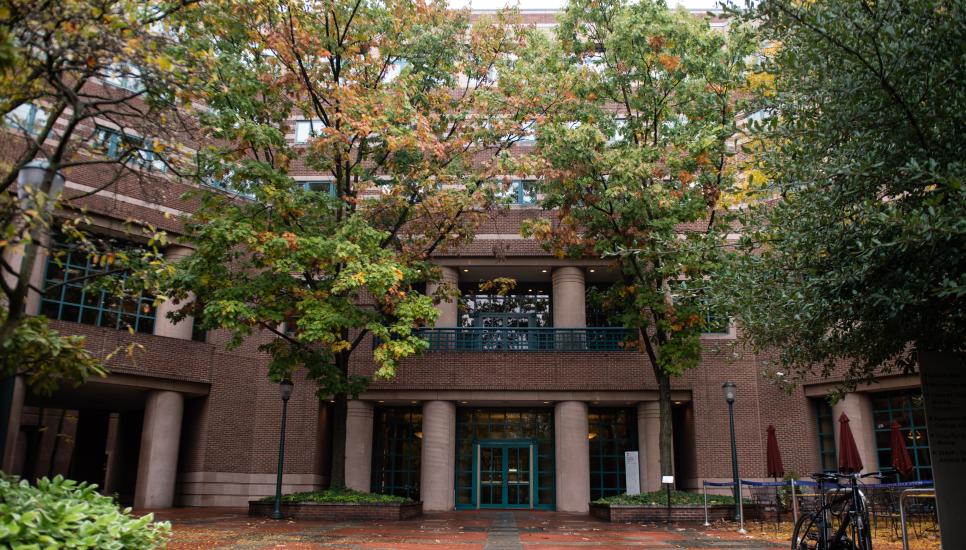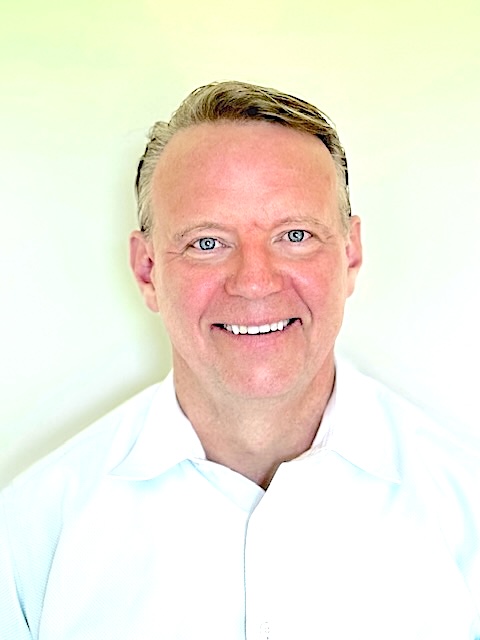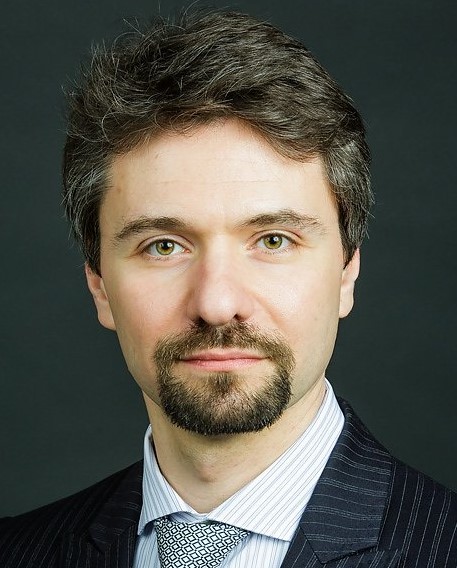The pinnacle of wealth education

The Institute for Private Investors (IPI) together with Campden Wealth and Wharton Business School at the University of Pennsylvania have run the first and most successful programme for members of ultra-high net worth families for the past 25 years.
What makes the Private Wealth Management programme unique is that it educates families in the fundamentals of generational wealth management and investment and does so in a curated community of their peers. Those attending experience a week of Wharton-calibre education in a confidential setting where they are able to learn and build relationships with peers of similar families from around the globe.
"After a quarter of a century, the programme and faculty is changing. Now in the hands of Academic Director Nick Roussanov and Co-Director Mike Kane, the programme has evolved just as the markets have changed. It still equips families to make the most informed investment decisions possible, but underpinned by the latest insights and academic thought, gives families that attend the course an edge that they can’t get anywhere else,” says Henry Samuelson, Director of Campden Wealth.
Here Roussanov and Kane talk to CampdenFB about how the programme has evolved and how it will continue to equip families with the skills that they need to achieve their family’s financial goals.
It’s been 25 years. What is the origin story of the relationship between Wharton and IPI/Camden?

Mike Kane: The origin of this programme can be traced back to Charlotte Beyer, who founded the Institute for Private Investors (IPI) in 1991. Charlotte had a talent for organising conferences that brought together a close-knit community of ultra-high net worth individuals and those in the family office sphere. During these gatherings, attendees often told her that they struggled to understand the financial jargon – terms like “alpha” or “downside capture” – that investment managers would use.
Recognising this gap in financial literacy, Charlotte approached Wharton with an idea for a course aimed at educating families with legacy wealth or recent liquidity events. She envisioned helping them become, in her words: “CEOs of their wealth”. These individuals were often already chief executives of their own companies or family offices, but they lacked the specialised knowledge to manage their wealth as professional investors – a skill set quite distinct from running a business.
When she first pitched the idea, the school turned it down, saying they already offered a similar programme called the Certified Investment Management Analyst (CIMA) certification. CIMA, however, was designed for financial professionals who served these families – people who likely had business school degrees and found doing Excel spreadsheets on weekends enjoyable. This was not the audience Charlotte had in mind. She was eventually granted another meeting at Wharton, this time with Richard Marston, who directed the CIMA programme. He immediately understood the importance of what she was proposing and agreed that the programme should be less technical and more practical, offering actionable knowledge that would empower families.
Together with a group of faculty members, they designed a curriculum around Charlotte’s vision and from the beginning, the programme was a resounding success.
To make the material more relatable, Charlotte introduced a case study format that reflected the kinds of situations wealthy families often face. This included a fictional scenario involving a mercurial entrepreneur and wealth creator who struggles with relinquishing power, experiences investment setbacks, and has health issues. Meanwhile, other family members, each with different risk tolerances and varying degrees of financial knowledge, grapple with the consequences. Although no specific family was modelled, the case study incorporated common themes like governance, wealth concentration, and charitable giving, making it highly relevant for all participants.
The programme spans a week, beginning on Sunday night when families first arrive, and culminating on Friday morning with their final presentations. Since Charlotte’s retirement three years ago, I have stepped into her role. I have aimed to bring my own perspective to the position.
This is the first such programme in the world, isn’t it?
Mike Kane: This programme was the first of its kind in the world and remains the most attended and highly regarded in its field. Over the years, many other programmes have tried to replicate it – a form of flattery, of course – but certain elements make this one unique. One key difference is the way that IPI curates who gets to attend. While all programmes typically require an application, IPI goes a step further. After applying, each prospective participant is interviewed by a senior executive from IPI to assess whether they are a good fit for the programme. This extra layer of vetting ensures that everyone who attends is surrounded by true peers.
Though the faculty is undeniably exceptional, the real driving force behind the programme’s success is the peer-to-peer learning that happens throughout the week. The exchange of ideas, experiences, and insights among participants truly fuels the programme's value.
Why is a programme like this needed?
Mike Kane: Our focus is primarily on families of wealth who manage their assets through a family office or have a deep relationship with a wealth manager. While there are programmes out there designed for entrepreneurs who sell their businesses – perhaps someone who was a software expert and suddenly finds themselves with $40 million, needing to learn about private equity and hedge funds – that’s not our target audience. While we cover similar content, our approach is entirely different. We centre everything on families who are either in the process of creating legacy wealth meant to span generations or are already managing multigenerational wealth.
Many of these families are navigating complex generational dynamics. They may have a rising generation with different investment values. Our programme is designed to support the infrastructure that these families are building around their wealth, ensuring it can be sustained over time, rather than focusing on the personal balance sheet of just one individual.
What sets this programme apart?

Nikolai Roussanov: What sets this programme apart and makes it distinct in the realm of wealth education, is the calibre of the faculty involved. When families study private equity, they are taught by the professor who holds the Endowed Chair in Private Equity. The level of expertise is unmatched, but what makes the programme truly special is the second key element: the person who is with the families throughout the entire week. Charlotte spent her career guiding families through these complex issues and Mike has spent 25 years talking to and advising families of wealth, exchanging ideas, sharing insights, and building a deep understanding of what they need.
One of the most remarkable aspects of this programme is its ability to deliver immense value to participants, despite the wide range of technical skills and backgrounds they bring. On one end of the spectrum, you have individuals who have been deeply involved in managing their investments for decades. For instance, in our last programme, one participant was a professional statistician with strong quantitative skills. On the other hand, some attendees might only use the calculator on their phones for basic tasks. Despite this wide variation in expertise, the feedback is consistently positive. Everyone leaves the programme feeling that they gained a great deal, and no one ever says that the material was too advanced or overwhelming. It’s a testament to the programme’s design and its ability to meet participants where they are, no matter their starting point.
Is it fair to say that the programme was global from the beginning?
Nikolai Roussanov: It has indeed been global from the beginning and remains so. In the most recent programme there was a significant representation from Latin America, Asia, and Europe. But despite this diversity, the families all face fundamentally similar issues. The specific environments, institutions, and country-specific factors may vary, but for families operating at this level of wealth, their concerns are largely global. The challenges they encounter transcend borders, and the programme addresses these universal questions, regardless of the particularities of their home countries.
What has changed over the past 25 years? How is the course evolving?
Mike Kane: There’s a growing recognition among families that they need to invest in their human capital to acquire the financial literacy that this programme provides. The Private Wealth Management programme effectively delivers on that need. There are more wealthy families than ever before, and the world is more interconnected. As a result, it’s not surprising that nearly half of the families participating in the programme now come from outside the US.
Another significant shift I’ve noticed is that families are investing with more intentionality and purpose than in the past. It’s less about finding the most efficient investment strategy – whether active or passive – and more about how their wealth aligns with their broader life goals. The focus has moved from simply seeking market returns to direct investing and making sure their wealth supports the family’s objectives for a good life.
In response to this shift, we’ve added content on direct investing in the last two years, and we’ve seen more families engaging in conversations about preparing the next generation to manage their wealth. It’s not uncommon for family members to return to the programme. For instance, in our last session, a mother who first attended six years ago with her husband returned four years later with her son. Last year, she brought her daughter. Many families participate in the programme multiple times, either as individuals or in pairs. When I asked this mother why she had returned, she said that when she and her husband had explained the family’s financial strategy to their children, it wasn’t well-received. But when those same principles were taught by Wharton professors, her children began to understand and accept the logic behind managing family wealth.
Where do you want to take the programme? What do you want it to be?
Nikolai Roussanov: Aside from my experience in overseeing the CIMA programme, I was chosen to take over this programme because of the alignment between my research background and the programme’s focus. My doctoral dissertation explored how wealthy families invest and the role entrepreneurial businesses play in their portfolios. These families face unique challenges in portfolio allocation, quite different from what is typically studied in finance. This broad perspective on research and teaching allows me to contribute to the programme in a meaningful way.
I see this programme maintaining its leadership position by evolving to address both modern behavioural factors and the current marketplace. For instance, private equity has surged in popularity recently. We’ll see how this plays out, especially given the current macroeconomic cycle.
One of the key debates in finance today is the role of active versus passive investing. Indexing has grown significantly for good reason, and for the average investor, it often serves as the core of their portfolio. However, for families of wealth, stopping at passive investments might not be sufficient. The question of how to strike the right balance between active and passive investing is critical, and while it’s not a settled issue academically, my goal is to help families understand the latest thinking in this area. By providing them with cutting-edge insights, I aim to equip them to make the most informed investment decisions possible.
You can register for the programme here.






